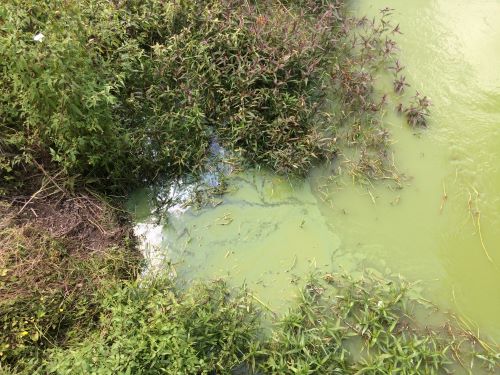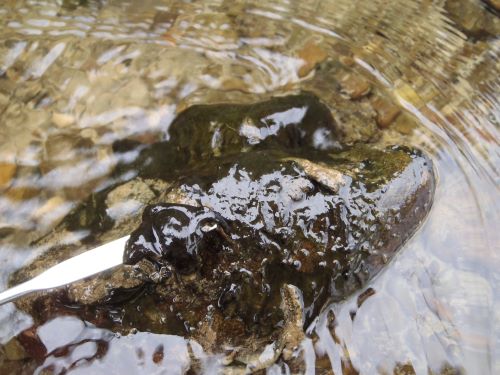Cyanobacteria (blue-green algae)
Cyanobacteria (commonly known as blue-green algae) are photosynthetic prokaryotic organisms that are integral parts of many terrestrial and aquatic ecosystems. In aquatic environments under favourable conditions, cyanobacterial cells can multiply and form planktonic (suspended in the water column) blooms or dense benthic (attached to the substrate) mats.
An increasing number of cyanobacterial species are known to include toxin-producing strains. These natural toxins, known as cyanotoxins, are a threat to humans and animals when consumed in drinking water or coming into contact with the skin during recreational activities.
Benthic cyanobacteria (phormidium) is very different to blue-green algae. It forms dense black shiny mats, typically on rocks in stony river beds but can also grow on sandy substrates. It is difficult to spot and is very toxic to dogs. Although the risk is higher in summer, algae can be present in Northland waterways all year round.
Our sampling programme
Northland Regional Council undertakes routine sampling, including cyanobacteria analysis, at our 15 State of the Environment lakes monthly. Additionally, we also test for cyanobacteria at a number of popular swimming lakes during the bathing months only, October through to April each year.
Cyanobacteria can be detected at low levels in water samples and may signal the early stages of a possible bloom. An alert level system is used to indicate the levels of Cyanobacteria. District Councils and the Northland District Health Board are notified when alert levels are triggered and further monitoring is und undertaken at recreationally used water bodies.
Frequently asked questions and guidelines
Planktonic cyanobacteria

Planktonic (free floating) cyanobacteria at Lake Omapere.
Benthic cyanobacteria

Benthic cyanobacteria growing on a rock. (Photo: Horizons).
Report it
If you suspect a waterbody is experiencing a cyanobacterial bloom and there are no signs placed near the waterbody informing there is one –
please contact our 24/7 NRC Incident Hotline to report it : 0800 504 639
